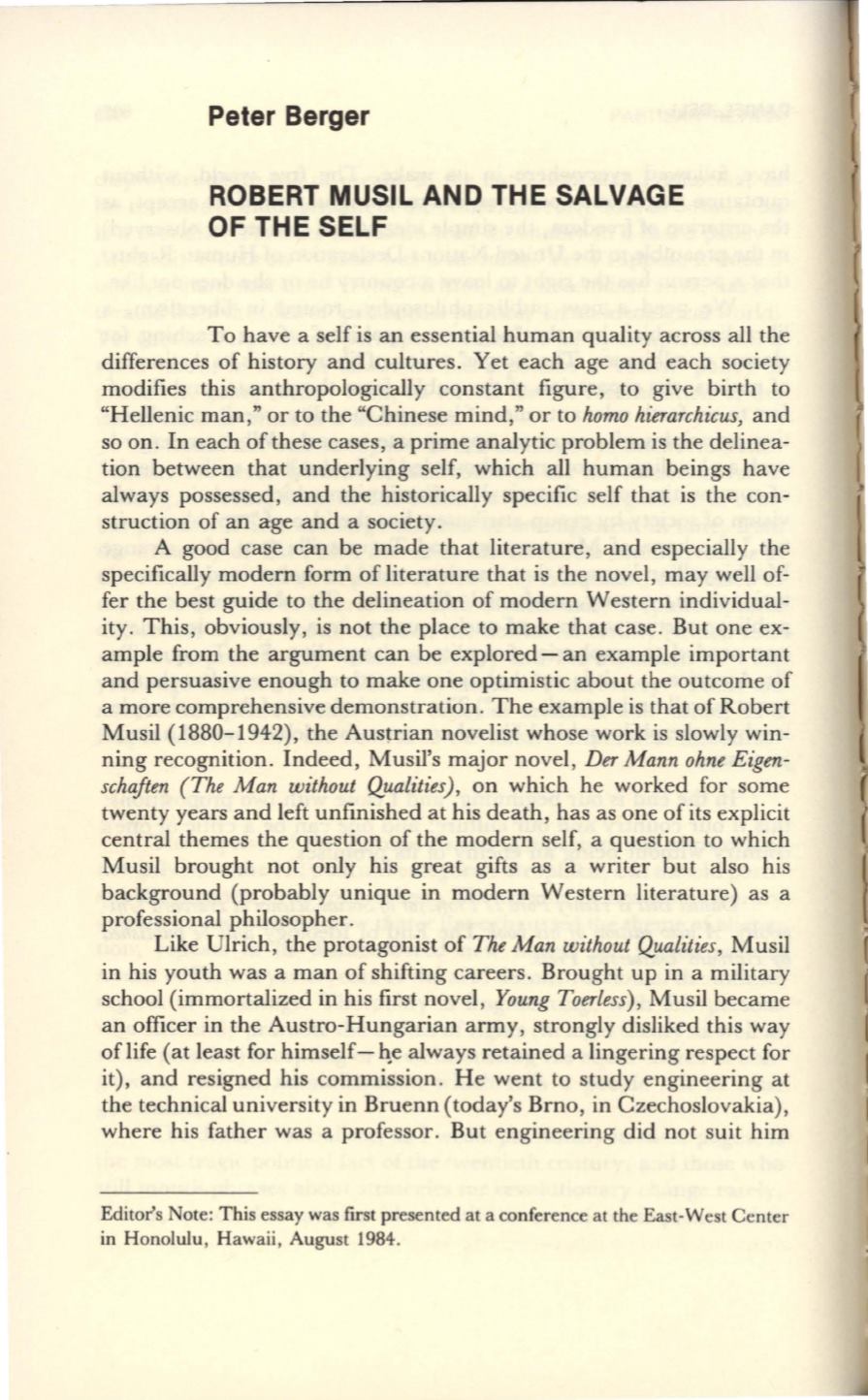
Peter Berger
ROBERT MUSIL AND THE SALVAGE
OF THE SELF
To have a self is an essential human quality across all the
differences of history and cultures. Yet each age and each society
modifies this anthropologically constant figure, to give birth to
"Hellenic man," or to the "Chinese mind," or to
homo hierarchicus,
and
so on. In each of these cases, a prime analytic problem is the delinea–
tion between that underlying self, which all human beings have
always possessed, and the historically specific self that is the con–
struction of an age and a society.
A good case can be made that literature, and especially the
specifically modern form of literature that is the novel, may well of–
fer the best guide to the delineation of modern Western individual–
ity. This, obviously, is not the place to make that case. But one ex–
ample from the argument can be explored- an example important
and persuasive enough to make one optimistic about the outcome of
a more comprehensive demonstration. The example is that of Robert
Musil
(1880-1942),
the Austrian novelist whose work is slowly win–
ning recognition. Indeed, Musil's major novel,
Der Mann ohne Eigen–
schaften (The Man without Qualities),
on which he worked for some
twenty years and left unfinished at his death, has as one of its explicit
central themes the question of the modern self, a question to which
Musil brought not only his great gifts as a writer but also his
background (probably unique in modern Western literature) as a
professional philosopher.
Like Ulrich, the protagonist of
The Man without Qualities,
Musil
in his youth was a man of shifting careers . Brought up in a military
school (immortalized in his first novel,
Young Toerless),
Musil became
an officer in the Austro-Hungarian army, strongly disliked this way
oflife (at least for himself- he always retained a lingering respect for
it), and resigned his commission. He went to study engineering at
the technical university in Bruenn (today's Brno, in Czechoslovakia),
where his father was a professor. But engineering did not suit him
Editor's Note: This essay was first presented at a conference at the East-West Center
in Honolulu, Hawaii, August 1984.


